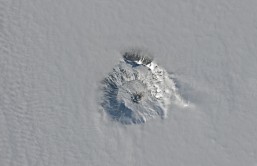The majority of seabirds like albatrosses and penguins have eaten plastic of some kind, possibly from trash that has been washed out into the ocean, according to a press release.
A new study discovered that 90 percent of existing seabirds today have ingested plastic, mistaking it for food, and many of them have plastic remaining in their gut. The study used information from literature published from 1962 to 2012 and employed a model to adjust the data to find the present trend.
Previous data showed that 80 out of 135, or 59 percent, of seabird species ingested plastic from 1962 to 2012. At present this translates to 90 percent of seabird species ingesting plastic. Based on the study authors' model, the greatest threat for the birds is at the Tasman Sea between New Zealand and Australia.
"We predict, using historical observations, that 90 percent of individual seabirds have eaten plastic. This is a huge amount and really points to the ubiquity of plastic pollution," said Chris Wilcox, lead study author and senior research scientist at CSIRO Oceans and Atmosphere.
The researchers also predicted that by 2050, 99 percent of all seabird species will have ingested plastic.
"Plastic in seabirds is ubiquitous, and it's increasing," Wilcox told BBC News.
"Every ocean is now filled with plastic," study co-author Van Sebille of the Imperial College London said. "Some have more than others, but what we found is that even the oceans that are not known for their plastic - they still have quite a bit of plastic and they can be where the harm is really done just because that's where all the birds live."
However, while the problem may be extensive, the authors noted that it can be solved through efficient solid waste management. If plastic waste can be stopped from being washed out into the ocean, the seabirds may be able to recover quickly.
"Because exposure to plastic turns out to be a strong predictor of how much plastic the birds have in them - that is, the more plastic they're exposed to, the more they ingest - this implies that if we reduce the amount of plastic going into the oceans, you would expect all these species to essentially respond," Wilcox said. "And this makes this problem different from something like climate change. It ought to be relatively easy to fix."
The study was published in the Aug. 31 issue of the Proceedings of the National Academy of Sciences.








